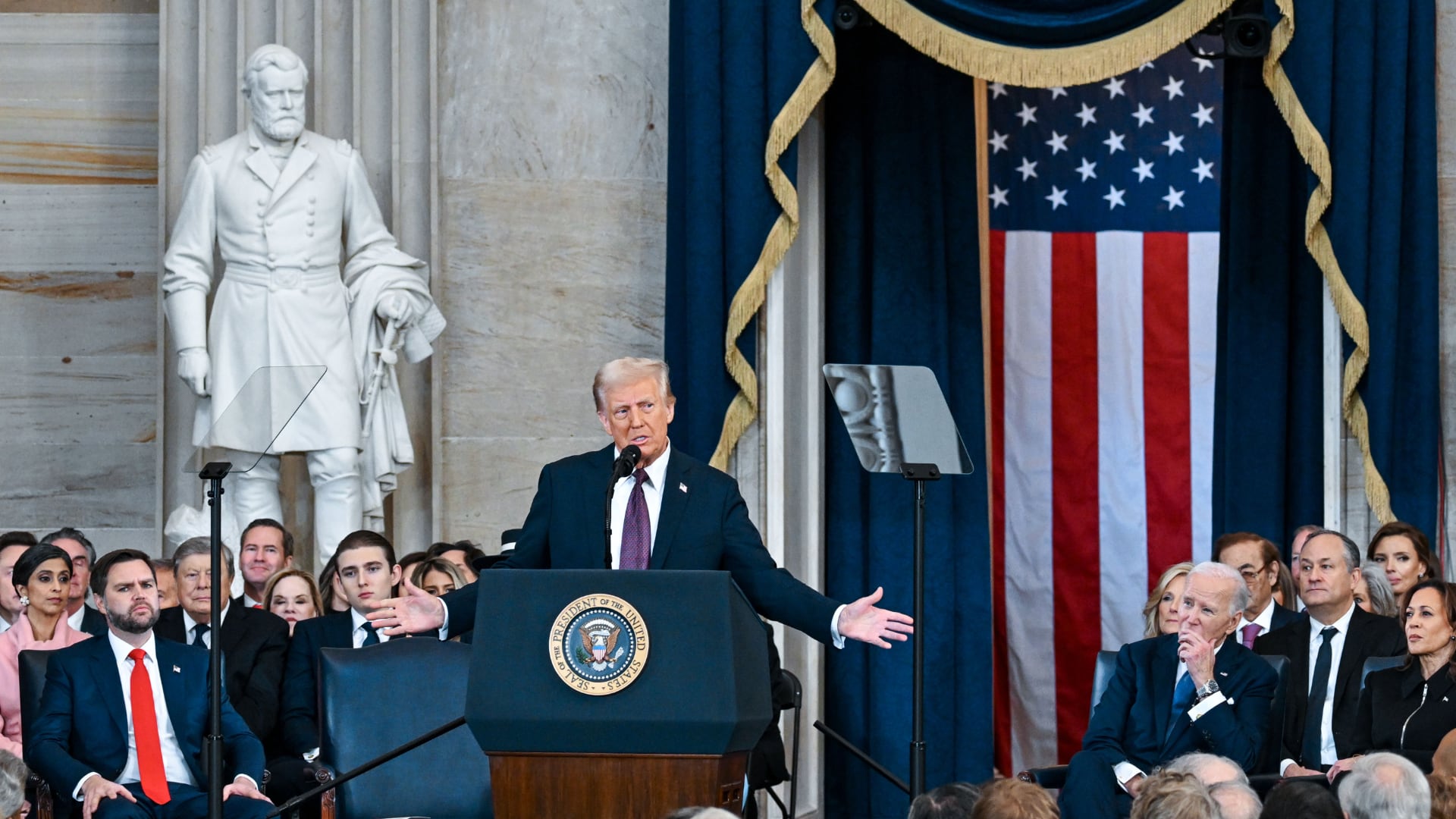By Kevin Freking and Stephen Groves
House Speaker Mike Johnson unveiled his proposal on Saturday to avoid a partial government shutdown by extending government funding for some agencies and programs until Jan. 19 and continuing funding for others until Feb. 2.
The approach is unusual for a stopgap spending bill. Usually, lawmakers extend funding until a certain date for all programs. Johnson decided to go with the combination approach, addressing concerns from GOP lawmakers seeking to avoid being presented with a massive spending bill just before the holidays.
“This two-step continuing resolution is a necessary bill to place House Republicans in the best position to fight for conservative victories," Johnson said in a statement after speaking with GOP lawmakers in an afternoon conference call. “The bill will stop the absurd holiday-season omnibus tradition of massive, loaded up spending bills introduced right before the Christmas recess."
The bill excludes funding requested by President Joe Biden for Israel, Ukraine and the U.S. border with Mexico. Johnson said separating Biden's request for an emergency supplemental bill from the temporary, stopgap measure “places our conference in the best position to fight for fiscal responsibility, oversight over Ukraine aid, and meaningful policy changes at our Southern border.”
Hardline conservatives, usually loathe to support temporary spending measures of any sort, had indicated they would give Johnson some leeway to pass legislation, known as a continuing resolution, or CR, to give Congress more time to negotiate a long-term agreement.
But some were critical in their reactions following the conference call.
"My opposition to the clean CR just announced by the Speaker to the @HouseGOP cannot be overstated," Rep. Chip Roy, R-Texas, tweeted on X. “Funding Pelosi level spending & policies for 75 days - for future ‘promises.’”
The White House, meanwhile, panned the plan as “unserious,” unworkable and a threat to national security and domestic programs.
"This proposal is just a recipe for more Republican chaos and more shutdowns—full stop," said press secretary Karine Jean-Pierre, pointing to opposition from members of both parties. “House Republicans need to stop wasting time on their own political divisions, do their jobs, and work in a bipartisan way to prevent a shutdown.”
The federal government is operating under funding levels approved last year by a Democratic-led House and Senate. Facing a government shutdown when the fiscal year ended Sept. 30, Congress passed a 47-day continuing resolution, but the fallout was severe. Kevin McCarthy was booted from the speakership days later, and the House was effectively paralyzed for most of the month while Republicans tried to elect a replacement.
Republicans eventually were unanimous in electing Johnson speaker, but his elevation has hardly eased the dynamic that led to McCarthy’s removal — a conference torn on policy as well as how much to spend on federal programs. This past week, Republicans had to pull two spending bills from the floor — one to fund transportation and housing programs and the other to fund the Treasury Department, Small Business Administration and other agencies — because they didn’t have the votes in their own party to push them through the House.
A document explaining Johnson’s proposal to House Republicans, obtained by The Associated Press, said funding for four spending bills would be extended until Jan. 19. Veterans programs, and bills dealing with transportation, housing, agriculture and energy, would be part of that extension.
Funding for the eight other spending bills, which include defense, the State Department, Homeland Security and other government agencies would be extended until Feb. 2.
The document sent to GOP lawmakers and key staff states that Johnson inherited a budget mess. He took office less than three weeks ago and immediately began considering appropriations bills through regular order. Still, with just days remaining before a shutdown, a continuing resolution is now required.
Underscoring the concerns about the possibility of a shutdown, the credit rating agency Moody’s Investors Service lowered its outlook on the U.S. government’s debt on Friday to “negative” from “stable,” citing the cost of rising interest rates and political polarization in Congress.
House Republicans pointed to the national debt, now exceeding $33 trillion, for Moody's decision. Analysts have warned that with interest rates heading higher, interest costs on the national debt will eat up a rising share of tax revenue.
Johnson said in reaction to the Moody's announcement that House Republicans are committed to working in a bipartisan fashion for fiscal restraint, beginning with the introduction of a debt commission.













